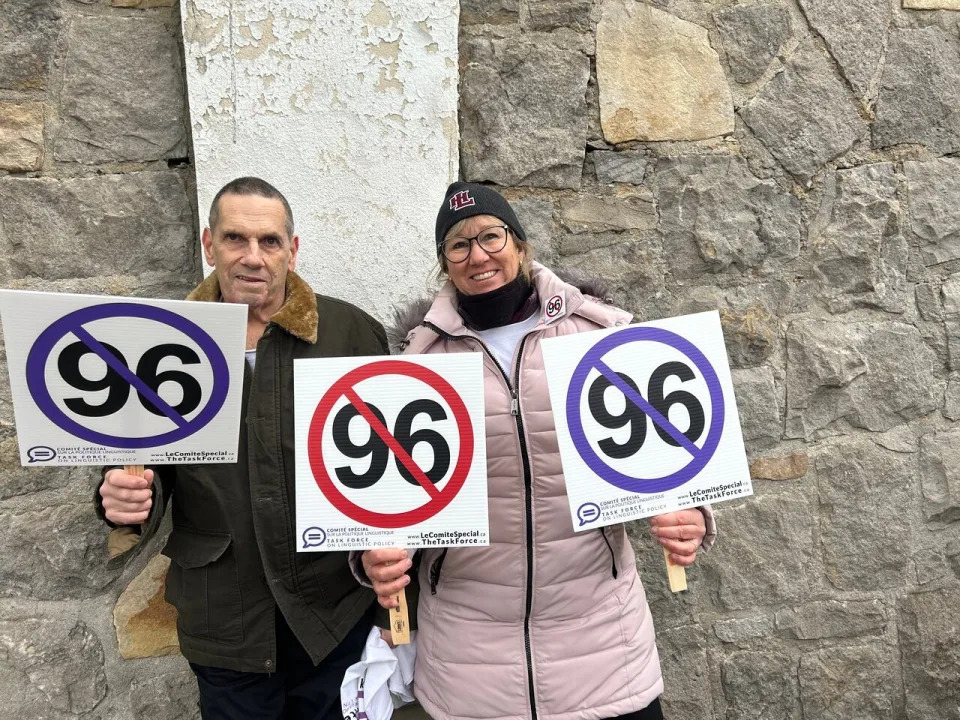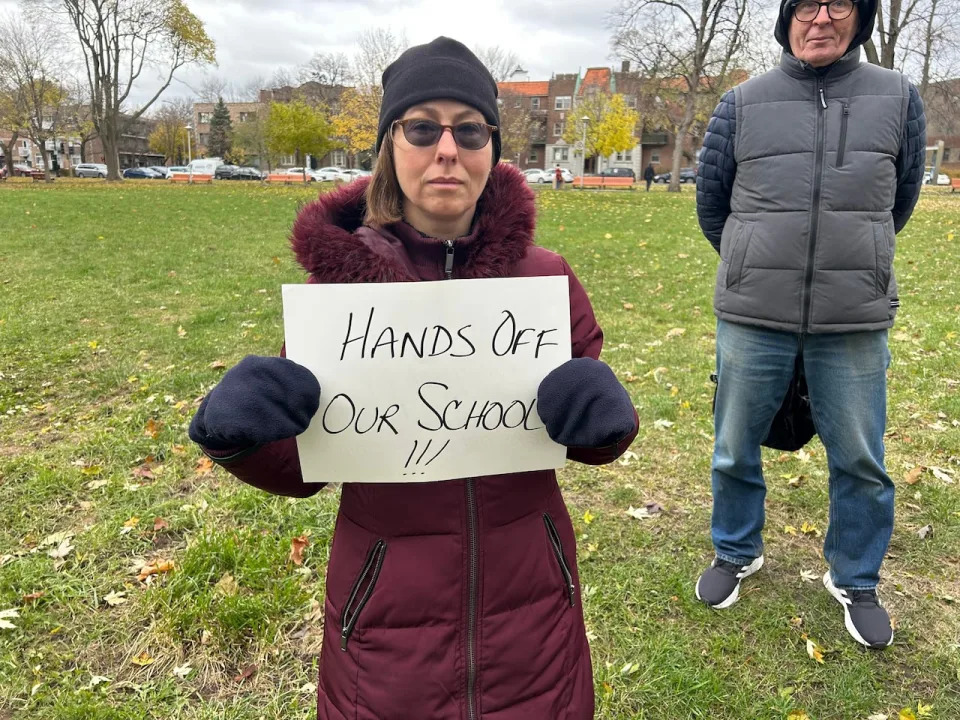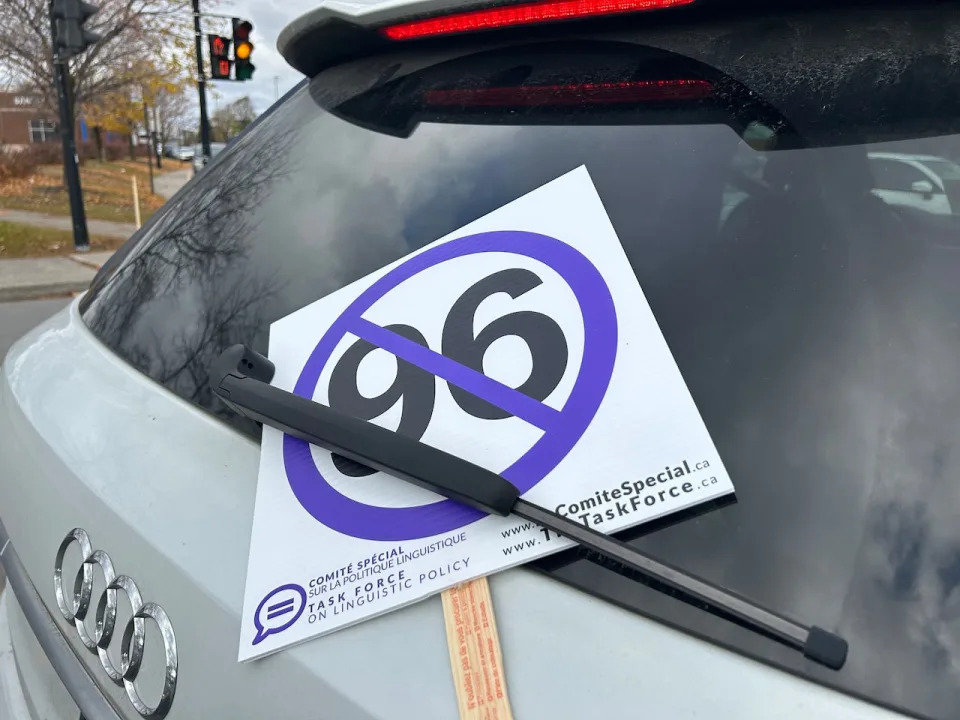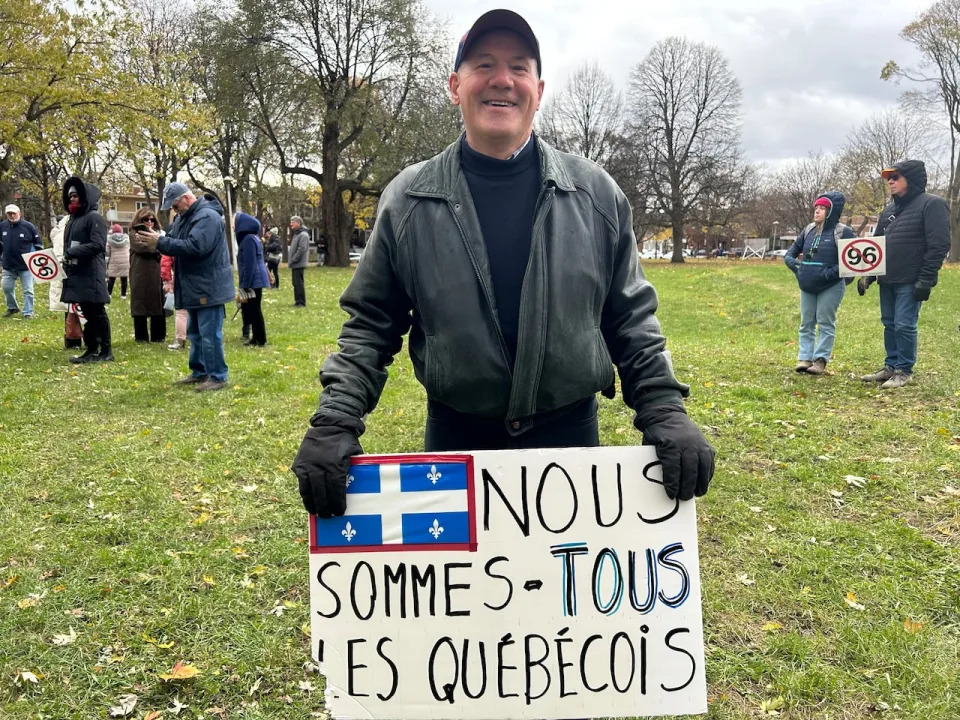CBC
Sun, November 19, 2023

Demonstrators took to the streets of Côte-des-Neiges—Notre-Dame-de-Grâce as part of a 10-kilometre
Demonstrators against Quebec's language law reform, commonly known as Bill 96, took to the streets of Montreal's Côte-des-Neiges—Notre-Dame-de-Grâce borough Sunday as part of a 10-kilometre "rolling procession" to make their voices heard.
Drivers, cyclists and people on foot came out for the fourth event organized by the Task Force on Linguistic Policy, a group fighting Bill 96 in court, to denounce what they're calling an attack on Quebec's English-speaking community.
"The English community has become the enemy," said Catherine Lund.
"It's like we shouldn't exist anymore, it's horrible. It feels awful to be an English Quebecer right now."

Catherine Lund says there are plenty of ways to encourage people to learn French without "attacking" English-speaking Quebecers. (Kwabena Oduro/CBC)
The Act respecting French, the official and common language of Quebec, amends several pieces of Quebec legislation, including the Charter of the French Language, which limits the use of English in the courts and by civil servants, and imposes stricter language requirements on small businesses, municipalities and CEGEPs.
The Coalition Avenir Québec (CAQ) government described the law as a response to what it says is the declining use of French in the province, particularly in Montreal.
But protester Joseph Cianflone says the law's wide range of measures will do more harm than good.
"These measures don't protect French, what they do is they create French as an antagonistic culture. They make people reject it, and we have to fight for it," he said.

A convoy of cars with signs against Bill 96 rolled through the borough Sunday. (Kwabena Oduro/CBC)
Born and raised in Montreal, Cianflone says language wars are not a day-to-day experience for most of the population, adding the government is "propagating a false sense of otherness."
Another controversial measure raised at the protest was Quebec's move to increase university tuition for out-of-province students by fall 2024, which officials said will help protect the French language.
Marie-Catherine Hall, 24, said coming to Montreal is a privilege and one that shouldn't be reserved solely for those who speak a certain language.
"We have a lot of history and culture that should be celebrated. I don't think it's fair to deny that," she said.
"I think it's a bit counterintuitive to raise tuition when we also want to have a dynamic economic province," she said, adding Quebec would be "shooting [itself] in the foot" should they go ahead with the increase.
Earlier this month, Quebec indicated it would push forward with the tuition hike, despite an offer from the province's English universities to teach out-of-province students French.

Andrew Caddell, president of the Task Force on Linguistic Policy and organizer of Sunday's event, says the support he's seen from the community is "inspiring." (Kwabena Oduro/CBC)
Andrew Caddell, president of the Task Force on Linguistic Policy, said Sunday's event is one of a series of rallies against Quebec's language policies. He said he's expecting to organize about six more.
Caddell says the events are also used to crowdfund for the group's court cases, adding they've already raised about $80,000 of the estimated $500,000 they'll need to cover the legal fees to get to the Supreme Court.
"It's incredibly inspiring," Caddell said, saying people giving money "shows how much [people] care about the cause."
"We knew that there would be support, but we had no idea how strong it would be."
The procession began at 10 a.m. in a parking lot near Decarie Boulevard and Jean-Talon Street. Participants were led on Jean-Talon, Côte-des-Neiges Boulvard., Queen-Mary Road., Decarie, Monkland Avenue, Cavendish Boulevard and de Maisonneuve Boulevard before ending with a rally in Trenholme Park in the Notre-Dame-de-Grâce neighbourhood.
No comments:
Post a Comment